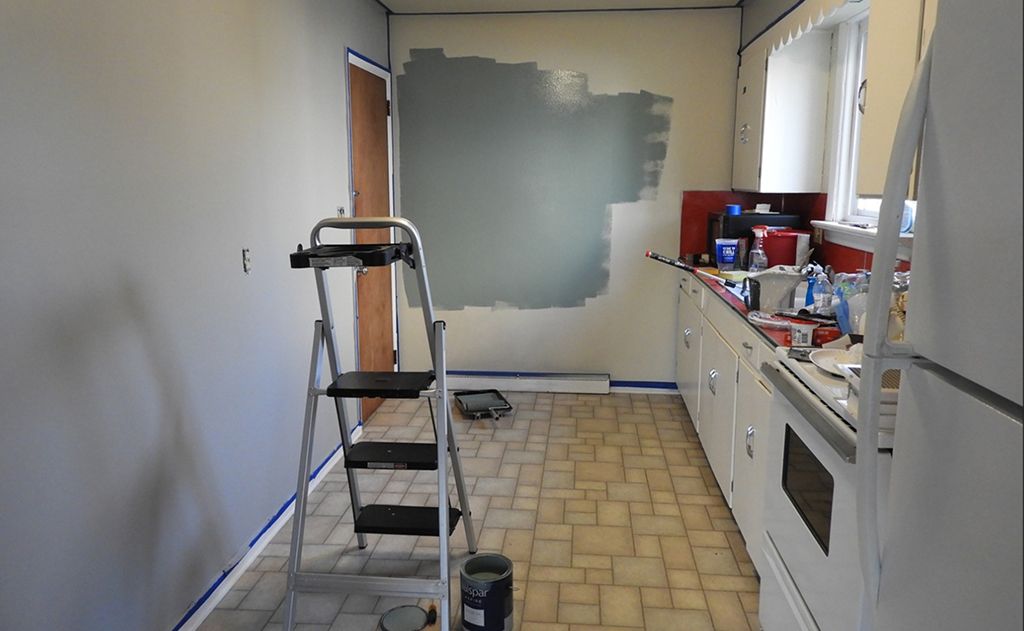So you’ve finally convinced yourself now is the time to buy a home. Maybe this is your first rodeo, but perhaps you’ve purchased before. Whether you’re a first-time homebuyer or not, ending up with the property you love for a price you can live with is the goal. Achieving this goal can be grasped through knowledge (it’s power!) and a keen insight into your local market. Focus on your goals and the information at your fingertips, it can save you grief as well as nasty surprises down the road.
When it comes to real estate, very few like surprises. In fact, many don’t even like surprises to begin with (most of my friends despise surprise parties). In order to avoid these unpleasantries, we’ve devised a list of seven ways to make your homebuying experience more enjoyable.
Lenders & Mortgage Brokers
There are so many lending options available to you, but if you’re like a majority of prospective buyers you might settle for one option. This could be a fatal first step, causing you to lose thousands of dollars in the process. Instead, a great approach would be to talk to multiple lenders (at least three) in addition to consulting a mortgage broker. You’ll want to have a solid basis for a comparison. Am I getting a good deal? Is this the lowest possible rate for my present situation (where I find myself in life, credit score, etc.)?
Compare lender fees, customer service, loan terms, rates and response times. The more you shop around, the more you’ll improve your chances of achieving some financial freedom. Certainly tap the bank you do all or most of your business with, but don’t solely rely on them.
Before you begin actively searching for homes in the marketplace, make sure you get pre-approved by a reputable lender. Don’t make the mistake of looking at properties before taking this first step into a much larger world. In competitive niche markets, you could forfeit your chance of landing your choice home if you aren’t pre-approved. This will also prevent you from gushing over a home you simply cannot afford.
Affordability Can Be An Issue Too
Ah yes, you don’t want to bite off more than you can chew either. In many markets throughout the country, the supply is dwindling, but buyers are itching for more affordable homes. It’s in these markets where we discover rising home prices and the challenges that come along with them.

If there’s one thing to take away from this article, it’s this: Don’t be swept away by your emotions, don’t let them completely engulf you, making your decisions for you. Rather, create a budget and stick with it. It should contain a list of your monthly expenses: Automobile, student loans, credit cards, groceries, health insurance, child care, investments, etc. Examine your costs and be realistic about what you can actually afford. Be sure to give yourself some wiggle room too.
Remember, by overspending, you could be putting yourself at risk for losing your home in the future should you encounter financial trouble. Overspending can often be tied to emotional needs rather than logical, unhasty decisions. Don’t lust after something that’s outside your price range nor feel the need to borrow the full amount of your pre-approval. Make an offer if you’re serious about buying a home, but do it after much reflection and preparation.
Overpaying For A Home
As stated above, overextending on a home purchase is usually not in a buyer’s best interest. I speak from experience on this. The first home I purchased, I reached to get it and seven years later when I needed to sell it, I found myself in a less than ideal situation. Stay focused on purchasing a home for a good price rather than on what you can spend.
Though there’s no way to absolutely guarantee you’ll make the best choice – markets do change as time goes by – discover the market value of a property before you’re willing to make an offer on such a large investment. Don’t rely on what the rateable or government value of a home would be. These valuations often fail to reflect what the home is actually worth in today’s market. You’ll want to make sure your offer to purchase is based on comparable homes that have already sold in recent months.
REALTORS® & Other Professionals
Don’t follow the path to home discovery alone! Each homebuyer should have buyer’s representation. This is important in order to protect your own interests or you could find other agents, who are actually working for the seller and not your interests, coaching you. REALTORS® educated buyers about the process. They are the “go to” person before and after a transaction even occurs. They can give you insights into who to consult, the surrounding communities/neighborhoods, if attorney representation is advisable and the like. Find a real estate professional who’s a good match for your personality and your schedule.
An experience REALTOR® can put you at ease. This can’t be overstated. They point many homebuyers in the right direction. They have connections, knowledge and course correction that’s needed in the present landscape. When it’s time to buy a property they link you with the right people as well. Your real estate professional can connect you with reputable inspectors and other service providers who can give you a clearer picture of what you’re facing ahead. What’s the condition of the home? What type of repairs are needed? A thorough inspection will help you avoid a money pit, so don’t neglect to inspect.
Credit Constraints
Before embarking on your quest for a new home, it’s important to give yourself maximum buying power, if time allows. Be patient, pay down some of your debt and save money. Believe it or not, boosting your credit score and/or saving enough for a significant down payment can take months or even years to accomplish. Here are some things to keep in mind prior to getting pre-approved with a bank:
- Have three to six months of living expenses saved in an emergency fund
- Don’t drain your savings to put a down payment on a home nor to pay the closing costs associated with settlement
- Stay level-headed and stick to your budget – meet with a financial planner, if necessary
When the time’s right, get pre-approved and keep the status quo in your finances through settlement. Don’t make your next significant purchase until you’ve closed on your home. Refrain from opening new lines of credit, closing existing accounts or taking on new loans. These would potentially impact your credit score and jeopardize your purchasing power. Furthermore, a buyer’s actions could cause the deal to go south and as a result he/she might be in jeopardy of losing his/her earnest money deposit.
Location, Bones, Location
As you and your agent begin to search for a home that’s perfectly suited to your needs, it’s important to keep an open mind, while not be overly picky with your selections. It may seem like a part-time job, attaining the right fit for you and your family, after all it can be vital to your lifestyle and development. Seek a home you can add value to.

When your search is underway, it may be difficult to ignore some of the cosmetic details, but that’s exactly how you may want to approach it to maintain sanity. A homebuyer should grasp the difference between things that can be changed relatively easily (like simple remodeling) versus things which are very expensive or near impossible to correct. Don’t let the physical imperfections turn you off. On the other hand, it’s important to perceive those things like your home’s yard/lot size or location, which cannot be changed. If you fixate on the home over its neighborhood or school district, you could end up loving the home, but hating where you live.
Ground yourself and know your limits. If your funds are tight, you may need to be willing to reside on a busy road, deal with a dated home or put some sweat equity into it. Prospective homebuyers should also do their research. With the aid of your REALTORS®, investigate the crime statistics and school ratings of areas where you’re interest lies. Gauge your commuting time to and from work. Visit the neighborhood where you’re thinking about moving to at different times of the day to understand traffic patterns and its vibe. Don’t look for perfection in a home, it rarely exists. In fact, in doing so, it could lead you to overpay for one along with grossly limiting your search.
Ownership’s Hidden Costs
Before you embark on this exciting adventure toward homeownership, don’t overlook the hidden costs, especially if you’re a first-time homebuyer. Have you considered the other expenses? You may need to pay for property taxes, homeowners insurance, flood insurance, mortgage insurance (PMI), repairs and maintenance costs, utilities, homeowners association dues (HOA), etc.
Set aside 2% to 3% of the home’s value each year to cover costs associated with maintenance and repairs. Don’t underestimate this buffer. In order to maintain your home, you’ll need to have this set aside. For instance, if your home has a market value of $250,000 and wasn’t recently built, then each year you should have $5,000 to $7,500 set aside for upkeep and repairs.
I know this information can be a little overwhelming for some thinking about buying a home, but it’s paramount to keep these potential pitfalls in mind. Again, focus on your goals and discuss this further with your real estate professional. How important is it for you to be a homeowner now than continue to rent and be one in the future? This is a question you’ll inevitably need to ask yourself.
We hope you enjoyed this article. For more helpful homebuyer information as well as our FAQs, click here. We always welcome your feedback!
